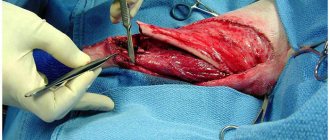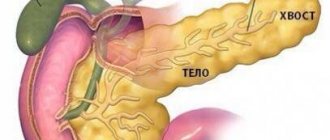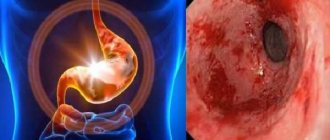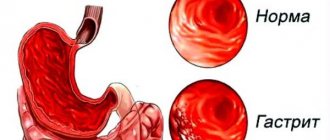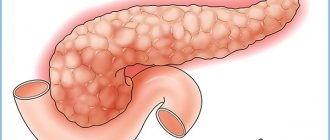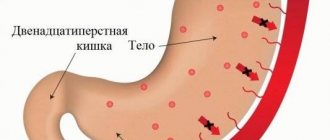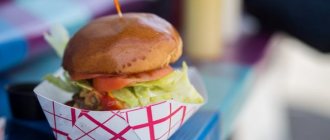Gastritis can be acute or chronic. There are a number of classifications of gastritis depending on the nature of the inflammation and the causes of the disease. The duration of the disease and clinical manifestations depend on the type of gastritis.
An attack of gastritis can begin as early as 20 minutes after the patient eats. An attack of acute gastritis can be provoked by poor quality food, fatty or heavy dishes, and fast food. Even banal overeating can cause an acute attack of gastritis. If action is not taken to eliminate the attack, gastritis becomes chronic.
Signs and symptoms
Symptoms of an attack of gastritis depend on many factors: the form of the disease, the degree of its development, the general condition of the body. If the patient has not encountered such problems before, then, most likely, the attack was provoked by poisoning or serious errors in nutrition. An exacerbation of a previously diagnosed disease may indicate the transition of the inflammatory process to a more severe stage, for example, due to the appearance of ulcers and an increase in the area of damage to the organ mucosa.
It should be understood that acute gastritis, in the absence of treatment, necessarily turns into a chronic form, which can “hide” for years behind periodic ailments.
An acute attack is evidence of serious disorders of the gastrointestinal tract, and not the body’s standard reaction to heavy food or alcohol consumption.
Characteristic manifestations of an attack:
- unpleasant taste in the mouth;
- constant pain in the abdomen (in the hypochondrium, in the navel area);
- pain after eating;
- flatulence;
- sour belching, severe heartburn;
- vomiting with mucus;
- possible increase in temperature;
- stool disorders (constipation or diarrhea).
If weakness increases, pain does not subside, and there are signs of blood in the vomit, then serious complications such as erosive gastritis, gastric and duodenal ulcers are possible. In this case, you should find a way to urgently transport the sick person to the hospital.
An attack of gastritis is also caused by pathogenic microorganisms (salmonella, staphylococcus). Affecting the gastric mucosa, they provoke acute pain, high (up to 39°C) body temperature, constant nausea, and frequent diarrhea. This leads to dehydration, causing the skin to become dry and pale, and appetite completely disappears.
An allergic reaction to food or improper use of painkillers (at your own discretion, without following the dosages and other recommendations of the manufacturer) can provoke malaise.
The forms of pancreatitis are different, but have a development pattern similar to an attack of gastritis. Abdominal pain is intense and constant. Their character, depending on the stage of the disease, can be cutting or blunt. The attack is accompanied by vomiting, dry mouth, nausea, and hiccups. The stool is foamy, with particles of undigested food.
It is impossible to ignore the signs of an attack of gastritis, since they cannot disappear on their own. However, relieving pain in such a situation is not enough. The body needs to be helped to recover, and the organs of the digestive system will have to not only recover from stress, but also return to full function.
How to prevent an attack from developing
To prevent an exacerbation from starting, the patient must reconsider his usual rhythm of life and follow simple rules:
- Eating healthy. Stop eating dry food, eat at regular intervals, choose portions that suit your individual needs, and give up junk food.
- To drink a lot of water. You need to take about two liters of fluid per day.
- Spend more time outdoors. A daily walk of at least an hour is recommended.
- Treat concomitant diseases in a timely manner.
- To live an active lifestyle. It is necessary to engage in physical education, various sports, and do exercises.
- Do not be nervous. Since stress plays an important role in the course of gastritis, treatment and the frequency of attacks, it is recommended to learn how to manage your mood, and if necessary, sedatives are allowed.
- Quit alcohol and smoking. These factors are provoking and have a very negative effect on the mucous membrane of the organ.
- As a preventive measure, in the presence of a chronic stage of the disease, it is necessary to contact a gastroenterologist once every six months to diagnose the condition of the digestive organ.
Gastritis in the acute stage responds well to treatment if you listen carefully to the doctor and follow his recommendations. When it comes to the chronic form, the disease in this case is in a “dormant” state, and an attack can begin at any time.
If the above conditions are met, it is possible to achieve long-term remission.
When the first symptoms of gastritis appear, be sure to consult a doctor. If pain and other manifestations come on suddenly and cause severe discomfort, call an ambulance. The doctor will tell you how to relieve pain and help stop the attack. Remember that a sick stomach often provokes concomitant diseases, for this reason you should never self-medicate.
Medical nutrition
Attacks of gastritis have pronounced and painful symptoms. The painful condition lasts from two days to a week. If the patient does not feel better over time, you cannot continue to self-medicate - you should seek help from a doctor. An attack of gastritis in a child, no matter how long it lasts, should be a reason to immediately contact a specialist.
After the sick person recovers, his appetite returns. And here you need to remember one important rule: a therapeutic diet must become the basis of your diet for the rest of your life. Those who think that in a month or a month and a half it will be possible to return to bad eating habits will have to reconsider their priorities. Once the pancreas fails, it will never be the same again, just like the stomach and intestines.
Since gastritis is represented by different types, the therapeutic diet in each case has its own characteristics. The following remain common to all types of pathology:
- consumption of natural products;
- refusal of coarse, fibrous, spicy, smoked foods;
- exclusion of fast food;
- restriction on alcohol (it is better to completely abstain from alcohol).
People with high acidity should exclude from the diet those that increase the secretion of hydrochloric acid, and for those whose pH-environment of gastric juice is normal or low, such restrictions do not apply. Fresh vegetables and fruits should be avoided. Food should be boiled, steamed or baked (without crust). White poultry meat, lean fish, soups, broths, and mashed porridges are allowed.
Drug treatment
An attack of gastritis has different symptoms, how long treatment lasts depends on the causes that caused it. Qualified treatment includes:
- drug therapy;
- diet.
If an exacerbation is caused by poisoning, gastric lavage is performed, followed by dehydration measures (injected with saline solution). The patient is also prescribed:
- alginates ( Gaviscon , Laminal );
- proton pump inhibitors ( Oomez , Omeprazole , Pantoprazole );
- antispasmodics ( No-shpa , Drotaverine );
- antacids ( Rennie , Phosphalugel , Maalox ).
These tablets are prescribed by a doctor, and their list is adjusted depending on the type of gastritis (hypo- or hyperacid).
Medicines
You can relieve pain on your own with available medications if the attack of gastritis is mild. Severe cases require medical supervision in a hospital setting.
The drugs needed for treatment and pain relief are classified as antacids. They neutralize acid, which causes irritation of the gastric mucosa, and relieve pain symptoms. Treatment with over-the-counter medications is permitted if it produces positive results within the first day of use. If there are no signs of recovery, the patient needs medical attention.
You can relieve painful symptoms using the following means:
- Cytotec and Omeprozole to reduce acidity;
- Almagel and Maalox to neutralize heartburn;
- Baralgin m and No-shpa to relieve spasms;
- Novopassit as a sedative;
- Festal and Mezim to improve digestion.
All these medications are sold with detailed instructions for use. It is necessary to follow the recommendations of the pharmaceutical company and study existing contraindications.
What to do during an exacerbation
If an attack is accompanied by unbearable pain, blood in the stool or vomit, or high body temperature, the first step is to immediately call an ambulance.
At home, you can relieve an attack of gastritis and reduce the intensity of pain using several techniques:
- You need to take a comfortable position. Usually the pain subsides significantly when the patient lies on his side and brings his knees as close to his chest as possible. You need to lie in this position for at least half an hour.
- After the onset of an exacerbation, fast for a day. Doctors say that the most effective treatment for a stomach attack is fasting. You can only drink water, and in unlimited quantities. Hunger should last no more than one day.
- Cold compresses. Cotton fabric is used. It needs to be moistened generously in cold water and applied to the disturbing area. Please note that this measure is only available for chronic disease. If there is a suspicion of internal bleeding, compresses should not be applied.
- Taking medications. At the first sign of an attack, medications are prescribed to help reduce the intensity of pain and combat other symptoms. First you need to take a drug that relieves spasm of smooth muscles - No-Shpu or Drotaverine. It is also necessary to take enveloping agents. For this you can use Maalox or Almagel.
- Application of traditional medicine recipes. If you don't have medicine on hand, regular potatoes can help. With the help of a vegetable, acute pain is well relieved. A few tablespoons of fresh potato juice is a good help. The liquid is taken on an empty stomach.
The above measures are auxiliary, that is, they are used exclusively for short-term relief. Only a gastroenterologist will prescribe complete treatment for gastritis after diagnosing the disease.
ethnoscience
At home, you can make warm teas with mint, dill water with the addition of a few fennel grains. Do not apply warm compresses to the abdominal area. Particular attention should be paid to food - you can eat dietary foods only in small portions.
After an acute attack of gastritis is relieved, traditional medicine recommends drinking raw potato juice on an empty stomach. You should start with two tablespoons drunk in the morning. Boiled water with a spoonful of honey (at room temperature only) is considered beneficial.
Seizures in adults and children have similar symptoms, but you cannot prescribe homemade recipes to a child at your own discretion. In the treatment of children, every step should be discussed with a pediatric gastroenterologist who knows the child’s medical history.
Preventive actions
In order to avoid relapses of the disease, as well as to avoid acute attacks, you should follow simple rules:
- do not overeat;
- drink alcohol in small quantities;
- Healthy food;
- avoid stress;
- treat chronic gastrointestinal pathologies.
The diet should be balanced and meals should be regular. You can’t get carried away with fast food and exclude first courses. This leads to disruption of the digestion process.
Relapse Prevention
The reason for the development of gastritis can be different: poor and inadequate nutrition, heredity, congenital malformations of the digestive organs, nervous exhaustion and constant fatigue, fashionable snacks and widely promoted cheap food restaurants, alcohol consumption, overeating. You can prevent the disease from progressing without the help of doctors. It is enough to choose a healthy lifestyle, instilling in yourself and your children the habit of taking care of the body, eating right, and maintaining peace of mind in any circumstances.
We recommend: Is it possible to eat prunes for gastritis? – 5 healthy dried fruits
Causes of gastritis
Familiarizing yourself with the causes of attacks of gastritis in detail, you can understand that nine out of ten people are at risk for the disease. It is necessary to have a good understanding of the capabilities of your body in order to be able to predict its reaction to a particular stimulus and take timely measures to avoid stress factors.
Provoke an attack of acute gastritis:
- frequent consumption of mealy, fatty foods cooked in large amounts of oil or by smoking;
- preference for spicy and salty foods;
- daily drinking of carbonated drinks, freeze-dried coffee and strong tea;
- smoking frequently (from 20 cigarettes per day);
- regular alcohol consumption;
- systematic treatment with antibiotics;
- E. coli infection;
- traumatic situations - targeted blows to the stomach area, severe stretching of the abdominal muscles;
- constant stress, irregular sleep, physical exhaustion;
- diets with unjustified dietary restrictions.
Even healthy people, nutritionists recommend organizing a meal schedule and carefully sticking to it. As for patients susceptible to attacks of gastritis, they must strictly follow the rules of nutritional culture: thoroughly chewing solid food until liquid, monitoring the level of satiety (when getting up from the table, you should feel slightly hungry), splitting food into 4-5 meals.
Basic diagnostic methods
The most important thing that a person who has suffered an attack of gastritis for the first time should know is that only a doctor can make a final and reliable diagnosis. Advice and recommendations from friends, acquaintances and “super specialists” from various thematic forums can do much more harm than complete inaction. At the slightest sign of illness, you should consult a doctor and undergo a special medical examination.
People who have a chronic form of the pathology know what an attack of gastritis is. But the disease is insidious in that it can, while developing, not manifest itself for a long time. Therefore, it is necessary to know what symptoms characterize an attack in order to know what measures to take.
Gastritis is an inflammation of the gastric mucosa. May occur with the formation of ulcers. The reasons why pathology can develop are different. Sometimes inflammation develops due to cystitis and other inflammatory processes. The culprits may be staphylococci and other pathogens. Treatment of the pathology should be carried out immediately.
